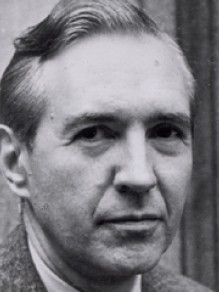Jacques Barzun, CC ’27 GSAS ’32, the distinguished teacher, historian, educator, cultural critic and University administrator, died Thursday night in San Antonio, where he lived. He was 104.
For more than half century, Barzun distinguished himself not only as one of Columbia’s most outstanding professors but also in a wide variety of administrative positions. A prolific author for both the specialist and the general reader, Barzun served as an example of the potential of liberal education within the University and without.
As an undergraduate, Barzun was drama critic of Spectator, editor of Varsity (the literary magazine) and president of the Philolexian Society. Immediately upon receiving his Ph.D., he was appointed as an instructor in the history department. He became a full professor in 1945, the Seth Low Professor of History in 1960 and a University Professor in 1967. Barzun taught Contemporary Civilization from the start of his career, and in 1932, was one of the driving forces behind the creation of the Colloquium on Important Books, which he taught once with Lionel Trilling CC ’25, GSAS ’38. He later helped establish Humanities A and taught the course regularly. He also served as dean of graduate faculties and provost.

Barzun wrote or edited more than 30 books. After graduating from the College, he edited and published Samplings and Chronicles from fellow College students. When he became a member of the faculty, he published The French Race (1932). He joined the professorial ranks upon publication of Race: A Study in Superstition (1932). By the time he became a full professor, Barzun had published Darwin, Marx, Wagner; Romanticism and the Modern Ego; and Teacher in America. He published Berlioz and the Romantic Century and God’s Country and Mine in 1954 and co-authored the The Modern Researcher in 1957. He published The House of Intellect in 1959, and The American University in 1968. Barzun’s Mellon Lectures at the National Gallery appeared as The Use and Abuse of Art in 1974, and in 2000, at 92, he published his masterpiece, From Dawn to Decadence: 500 Years of Western Cultural Life. A Jacques Barzun Reader was printed in 2002.
Barzun was born in Créteil, France, a suburb of Paris, on November 30, 1907. He became a U.S. citizen in 1933, and lived in New York until moving to San Antonio, his wife Marguerite’s home city, in the mid-1990s. During his career, Barzun also served two terms as president of the American Academy and Institute of Arts and Letters and spent two decades as literary adviser to publisher Charles Scribner’s Sons. He was elected to the American Academy and Institute of Arts and Letters the American Academy of Arts and Sciences, and the Royal Society of Literature, Royal Society of Fine Arts and Chevalier de la Légion d’Honneur. In 1994, he accepted the College’s Alexander Hamilton Medal on behalf of the tenured teachers of the Core. In 2003, he received the National Medal of Freedom and in 2011, he received the National Humanities Medals.
Barzun’s commitment to the College never wavered. Even after retiring from the University in 1975, he continued to defend the Core Curriculum and to speak out against declines in academic standards. As one former Columbia graduate student remarked, Barzun was known for “prestige, authority and self-confidence” and for “his unapologetic insistence upon excellence.”
- Jacques Barzun Dies at 104, The New York Times, Oct. 25, 2012
- Barzun Receives National Humanities Medal, March 2, 2011
- A Conversation With Jacques Barzun, Sept. 12, 2010

- 100 Years of Barzun (PDF), The Record, Oct. 25, 2007
- Jacques Barzun Honored With the Society of Columbia Graduates' Annual Great Teacher Award, Oct. 18, 2007
- Living Legacies: Jacques Barzun '27, Columbia College Today, January 2006